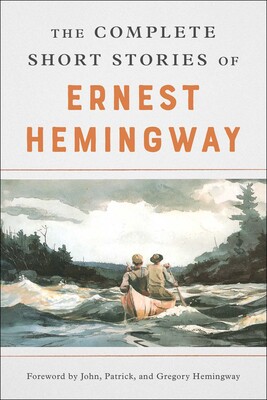 My reflections on “Regret” by Kate Chopin are deeply intertwined with my own experiences. At the age of five, I faced my parents’ divorce, which left me feeling disconnected from the world around me. Anger consumed me, and I found myself harboring resentment towards others. My youthful inability to grasp and accept the reality of the situation led me to manipulate those around me, a choice I now regret. The narrative of the protagonist resonates with me, as it represents a potential path I could have taken—living as both male and female within a single existence. This story has prompted me to reevaluate my actions and thoughts, encouraging me to embrace the future I am determined to shape for myself.
My reflections on “Regret” by Kate Chopin are deeply intertwined with my own experiences. At the age of five, I faced my parents’ divorce, which left me feeling disconnected from the world around me. Anger consumed me, and I found myself harboring resentment towards others. My youthful inability to grasp and accept the reality of the situation led me to manipulate those around me, a choice I now regret. The narrative of the protagonist resonates with me, as it represents a potential path I could have taken—living as both male and female within a single existence. This story has prompted me to reevaluate my actions and thoughts, encouraging me to embrace the future I am determined to shape for myself.
“Regret” is a three-page fiction story by Kate Chopin written in September 1894, and it was published first in her collection A Night in Acadie in 1897. The story is about a fifty-year-old unmarried woman, Mamzelle Aurélie, who looks after four children of her neighborhood.
This story is interesting and at the same time strongly related to a real-world issue. In short, this story is about is a fifty-year-old woman who remains single and has never entertained the idea of marriage. In fact, she has never experienced love. When she was twenty, a man proposed to her, but she declined his offer. She operates a farm filled with various animals and holds strong religious beliefs, yet she finds herself quite isolated in life. Unfortunately, many women have adopted the skill set of men to show their power and independence. In this short story by Kate Chopin, I have come to the idea that by switching our feminine side to male side we are losing ourselves and our softness. It does not mean that I am telling all women get married as as soon as possible, but it means that we are not supposed to follow what all people do follow in our society and world standards. Be unique and self-reliant from society’s expectations and values, then you will obtain the freedom. Many females think that by creating feminism, they could change people around and push them to listen to our voices, but we are not in fairy tales, where everything comes true. Thus, if a person does not listen to what we are trying to say, it simply means that we do not matter to this company or a person. Therefore, our main character decided to prove to everyone that she can handle everything that a man can, but with the cost of closing out her feminine side.
One morning, neighbor Odile visits her without invitation, requesting that Mamzelle Aurélie care for her four children while she visits her ailing mother, as Odile’s husband is away in Texas. Initially, Mamzelle Aurélie is unwilling to take on the responsibility of someone else’s children and struggles to keep them engaged during the first few days. When she attempts to usher them to bed like she does with her chickens, the children simply remain still, confused by her commands. She did not have any prior experience with any kids, and she could even understand them and there were no “instructions” to better understand youths. Hence, Mamzelle Aurélie shares her frustrations with her cook, expressing that she would prefer to manage multiple plantations rather than look after four kids. She feels ill-equipped for the task at hand. However, after two weeks of having the children in her home, she begins to adapt and stops voicing her discontent about their presence. She simply tolerates the situation and that she will not be able to leave them, therefore, begins having a sense how to treat them and when.
The author, Kate Chopin, illustrates Aurélie as a man, she was wearing male clothes, a hat that men would put on; while working on farm and more important, she used the wording at the end of the scene that she wept “like a man.” All of these wording literally shows that Aurélie lost her femininity but has had a taste of how it is to be a mother and be a female. With this indirect speech we can feel the thoughts and feelings that the protagonist might have.
The concluding paragraph of “Regret” holds symbolism and significance. Aurélie’s hesitation to immediately tidy up the chaos left by the children indicates her desire to preserve the memory of their shared moments. She understands that once she cleans and organizes, all tangible evidence of their presence will disappear. Therefore, Aurélie comes to regret at the end because by proving that she can handle a man’s responsibility, she lost herself. She regrets that she could not had her own kids, did not feel in love, did not have a chance to understand how it is to be a female and how it is to be soft. But the main question is—with this regret will something change in her life tomorrow, next week, or next month? Kate Chopin left us reflecting on the futures of her characters long after we have turned the final page of her short story.
Get the story! “Regret” is included in Kate Chopin: Complete Novels and Stories, which you can check out at BMCC’s Library, the New York Public Library, or the Queens Public Library. You can also read the story online or download it as an ebook from Project Gutenberg, which has digitized the 1897 edition of A Night in Acadie, the first collection by Chopin that included the story.
About the author This review is by Sabrina Bakhranova.
 This work is licensed under a Creative Commons Attribution 4.0 International License.
This work is licensed under a Creative Commons Attribution 4.0 International License.




